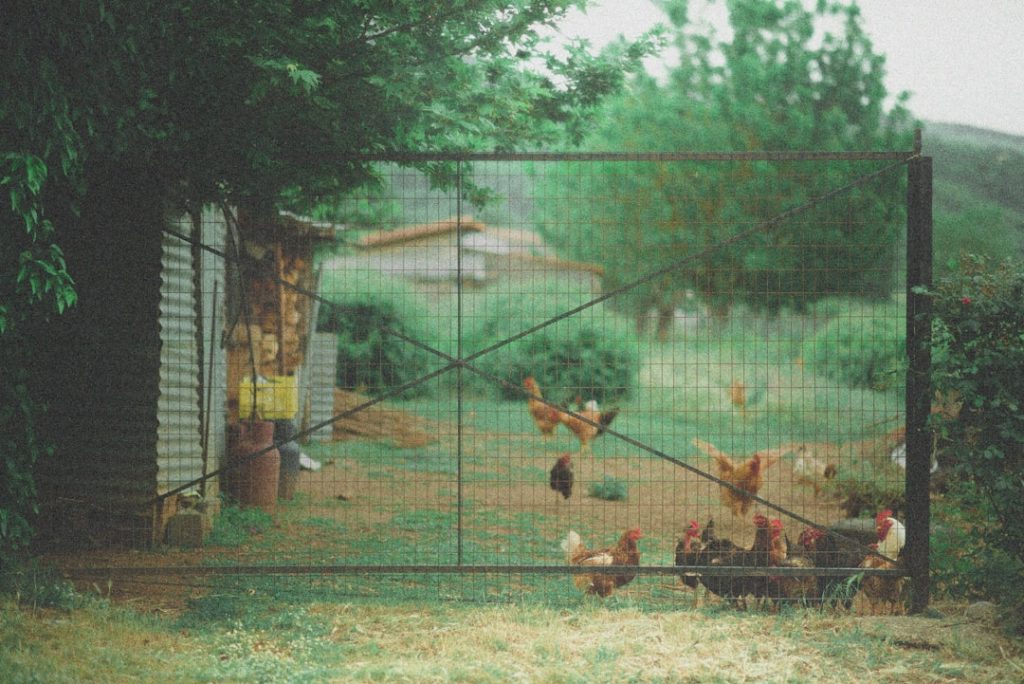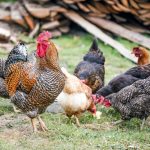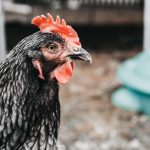When selecting free-range chicken breeds, several factors should be considered. Climate adaptability is crucial, as some breeds are better suited to cold or warm environments. Space requirements vary between breeds, with larger ones needing more room to roam than smaller, more compact varieties.
Egg-laying capacity is an important consideration for those primarily interested in egg production. Conversely, meat quality and flavor are key factors for those raising chickens for meat. Breed temperament is also significant, as some are more docile and friendly, while others can be more aggressive.
Popular free-range chicken breeds include Rhode Island Reds, Plymouth Rocks, and Sussex chickens. These breeds are known for their hardiness, good egg production, and friendly dispositions, making them suitable for beginners. Australorps and Orpingtons are particularly well-suited to foraging and thriving in outdoor environments.
Ultimately, the ideal breed depends on specific needs and preferences. Thorough research is essential to select a breed that aligns with the goals of raising free-range chickens.
Table of Contents
- 1 Creating a Safe and Comfortable Coop
- 2 Providing Proper Nutrition and Water
- 3 Allowing for Ample Space to Roam and Forage
- 4 Protecting Your Chickens from Predators
- 5 Regular Health Checks and Veterinary Care
- 6 Ensuring Proper Waste Management and Cleanliness in the Yard
- 7 FAQs
- 7.1 What are free range chickens?
- 7.2 What are the benefits of keeping free range chickens in your yard?
- 7.3 What do free range chickens need in terms of space and shelter?
- 7.4 What do free range chickens eat?
- 7.5 How do you protect free range chickens from predators?
- 7.6 Are there any local regulations or restrictions for keeping free range chickens in your yard?
Key Takeaways
- Consider the climate, space, and purpose of raising chickens when choosing the right breed for free range
- Provide a secure coop with proper ventilation, nesting boxes, and roosting bars for the chickens’ safety and comfort
- Ensure access to a balanced diet, clean water, and necessary supplements for the chickens’ overall health and well-being
- Allow ample space for chickens to roam and forage, and consider adding enrichments like dust baths and perches
- Implement predator-proofing measures such as fencing, secure latches, and predator deterrents to protect the chickens
- Schedule regular health checks and seek veterinary care when needed to maintain the chickens’ health and prevent diseases
- Maintain proper waste management, cleanliness, and hygiene in the yard to prevent the spread of diseases and parasites
Creating a Safe and Comfortable Coop
Ventilation, Insulation, and Predator-Proofing
Proper ventilation is crucial for maintaining good air quality and preventing moisture buildup, which can lead to respiratory issues in chickens. Insulation can help regulate the temperature inside the coop, keeping your chickens comfortable in both hot and cold weather. Predator-proofing is essential for keeping your chickens safe from potential threats such as foxes, raccoons, and birds of prey.
Space and Comfort
Chickens need enough space to move around freely and engage in natural behaviors such as scratching and dust bathing. Providing perches and nesting boxes can help create a comfortable and stimulating environment for your chickens. It’s also important to keep the coop clean and well-maintained, as a dirty or overcrowded coop can lead to health issues for your chickens.
Maintaining a Healthy Environment
By creating a safe and comfortable coop, you can ensure that your free-range chickens have a happy and healthy living environment. Providing adequate space, proper ventilation, insulation, and predator-proofing, as well as maintaining cleanliness in the coop, are all essential for keeping your chickens healthy and thriving.
Providing Proper Nutrition and Water
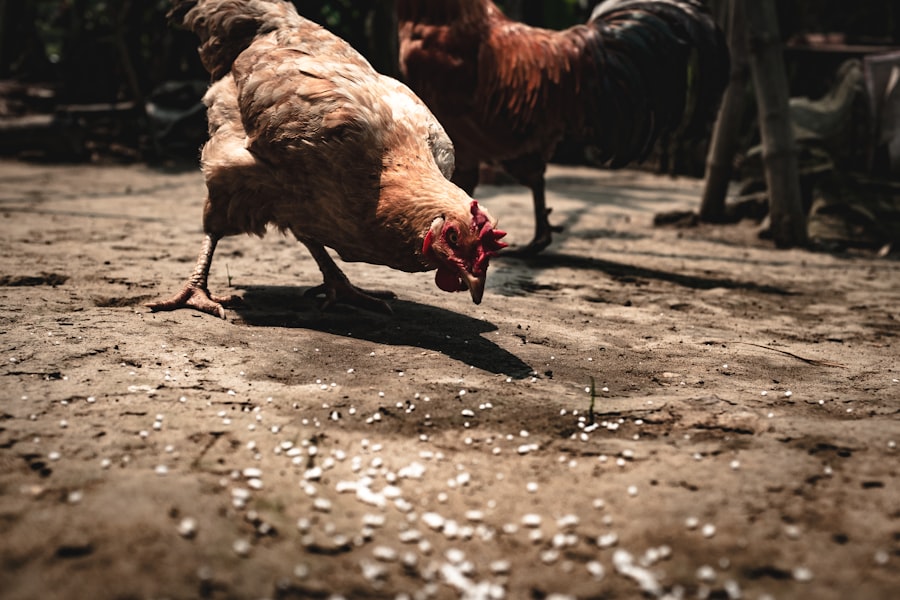
Providing proper nutrition and water is essential for the health and well-being of your free-range chickens. A balanced diet is crucial for supporting egg production, maintaining healthy feathers, and promoting overall health in chickens. When it comes to feeding free-range chickens, it’s important to provide a high-quality commercial feed that is specifically formulated for laying hens.
Additionally, supplementing their diet with fresh fruits and vegetables can provide added nutrients and variety. It’s also important to provide access to clean, fresh water at all times, as dehydration can lead to serious health issues in chickens. In addition to providing a balanced diet, it’s important to consider the specific nutritional needs of your chickens based on factors such as age, breed, and activity level.
For example, growing chicks will have different nutritional requirements than mature hens, while certain breeds may have specific dietary needs. It’s also important to monitor your chickens’ food intake and adjust their diet as needed based on their individual needs. By providing proper nutrition and water, you can ensure that your free-range chickens stay healthy and thrive in their environment.
When it comes to providing proper nutrition and water for your free-range chickens, there are several key considerations to keep in mind. First and foremost, it’s important to provide a balanced diet that meets the specific nutritional needs of laying hens. This includes offering a high-quality commercial feed that is formulated for egg production, as well as supplementing their diet with fresh fruits and vegetables for added nutrients and variety.
Additionally, it’s important to provide access to clean, fresh water at all times to prevent dehydration and support overall health in chickens. Another important consideration when providing nutrition for free-range chickens is monitoring their food intake and adjusting their diet as needed based on factors such as age, breed, and activity level. For example, growing chicks will have different nutritional requirements than mature hens, while certain breeds may have specific dietary needs.
It’s also important to consider the impact of seasonal changes on your chickens’ nutritional needs and adjust their diet accordingly. By providing proper nutrition and water, you can ensure that your free-range chickens stay healthy and thrive in their environment.
Allowing for Ample Space to Roam and Forage
Allowing for ample space for your free-range chickens to roam and forage is essential for their physical and mental well-being. Chickens are natural foragers and thrive when given the opportunity to explore their environment, scratch for insects, and peck at plants. Providing access to a large outdoor area with plenty of vegetation can help satisfy their natural instincts and provide mental stimulation.
Additionally, allowing them to roam freely can help prevent behavioral issues such as aggression or feather pecking that can arise from overcrowding or lack of stimulation. In addition to providing ample space for roaming and foraging, it’s important to consider the impact of environmental factors such as weather conditions and predators on your chickens’ outdoor access. Providing sheltered areas where they can seek refuge from extreme heat or inclement weather is essential for their comfort and safety.
Additionally, implementing predator-proof fencing around their outdoor area can help protect them from potential threats such as foxes or birds of prey. By allowing for ample space for your free-range chickens to roam and forage while also considering their safety and comfort, you can ensure that they lead happy and fulfilling lives. When it comes to allowing for ample space for your free-range chickens to roam and forage, there are several key considerations to keep in mind.
First and foremost, it’s important to provide access to a large outdoor area with plenty of vegetation where they can explore, scratch for insects, and peck at plants. This allows them to satisfy their natural instincts as foragers and provides mental stimulation. Additionally, allowing them to roam freely can help prevent behavioral issues such as aggression or feather pecking that can arise from overcrowding or lack of stimulation.
Another important consideration when allowing for ample space for free-range chickens is providing sheltered areas where they can seek refuge from extreme heat or inclement weather. This helps ensure their comfort and safety while outdoors. Additionally, implementing predator-proof fencing around their outdoor area can help protect them from potential threats such as foxes or birds of prey.
By allowing for ample space for your free-range chickens to roam and forage while also considering their safety and comfort, you can ensure that they lead happy and fulfilling lives.
Protecting Your Chickens from Predators
Protecting your free-range chickens from predators is essential for their safety and well-being. Predators such as foxes, raccoons, birds of prey, and even domestic pets pose a threat to free-ranging chickens. Implementing predator-proof fencing around their outdoor area is crucial for keeping them safe from potential threats.
Additionally, providing secure coops with sturdy latches can help prevent predators from gaining access to your chickens at night when they are most vulnerable. In addition to physical barriers, it’s important to consider other deterrents such as motion-activated lights or sound devices that can help scare off potential predators. It’s also important to be vigilant about monitoring your chickens’ outdoor environment for signs of predators or potential threats.
By taking proactive measures to protect your free-range chickens from predators, you can help ensure that they remain safe while enjoying the benefits of free-ranging. When it comes to protecting your free-range chickens from predators, there are several key measures you can take to keep them safe from potential threats. Implementing predator-proof fencing around their outdoor area is crucial for preventing access from predators such as foxes, raccoons, birds of prey, or domestic pets.
Additionally, providing secure coops with sturdy latches can help prevent predators from gaining access to your chickens at night when they are most vulnerable. Another important consideration when protecting your free-range chickens from predators is implementing deterrents such as motion-activated lights or sound devices that can help scare off potential threats. It’s also important to be vigilant about monitoring your chickens’ outdoor environment for signs of predators or potential threats.
By taking proactive measures to protect your free-range chickens from predators, you can help ensure that they remain safe while enjoying the benefits of free-ranging.
Regular Health Checks and Veterinary Care
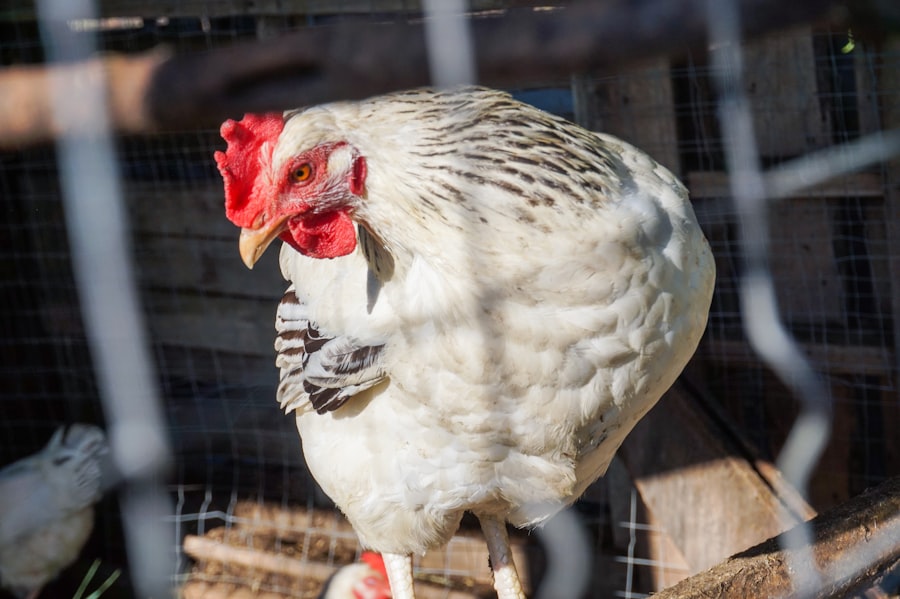
Identifying Potential Health Issues
Monitoring your chickens’ overall health involves observing their behavior, checking their feathers and skin for signs of parasites or disease, and monitoring their egg production. This allows you to identify any potential issues early on before they become more serious problems.
Providing Access to Veterinary Care
Additionally, providing regular access to veterinary care from a qualified avian veterinarian can help ensure that any health issues are addressed promptly. In addition to regular health checks, it’s important to implement preventative measures such as vaccinations or parasite control to help protect your chickens from common diseases or parasites.
Maintaining a Clean Living Environment
Providing a clean living environment with proper waste management can also help prevent health issues in your flock. By prioritizing regular health checks and veterinary care for your free-range chickens, you can help ensure that they remain healthy and thriving in their environment.
Ensuring Proper Waste Management and Cleanliness in the Yard
Ensuring proper waste management and cleanliness in the yard is essential for maintaining the health of your free-range chickens. Proper waste management involves regularly cleaning out the coop and removing soiled bedding or droppings from the yard area where your chickens roam. This helps prevent the buildup of bacteria or parasites that can lead to health issues in your flock.
Additionally, providing proper drainage in the yard area can help prevent standing water or mud that can attract pests or create unsanitary conditions for your chickens. Implementing composting systems for organic waste such as kitchen scraps or garden trimmings can also help reduce waste buildup while providing nutrient-rich compost for your garden. By prioritizing proper waste management and cleanliness in the yard area where your free-range chickens roam, you can help maintain a healthy living environment for them.
When it comes to maintaining the health of your free-range chickens, ensuring proper waste management and cleanliness in the yard area where they roam is crucial. Proper waste management involves regularly cleaning out the coop and removing soiled bedding or droppings from the yard area. This helps prevent the buildup of bacteria or parasites that can lead to health issues in your flock.
Another important aspect of maintaining cleanliness in the yard area is providing proper drainage to prevent standing water or mud that can attract pests or create unsanitary conditions for your chickens. Implementing composting systems for organic waste such as kitchen scraps or garden trimmings can also help reduce waste buildup while providing nutrient-rich compost for your garden. By prioritizing proper waste management and cleanliness in the yard area where your free-range chickens roam, you can help maintain a healthy living environment for them.
If you’re considering keeping free range chickens in your yard, you may also want to think about adding turkeys to your flock. According to Poultry Wizard, turkeys do need a coop for protection from predators and the elements, just like chickens. This article provides valuable information on the housing requirements for turkeys, which can be helpful for anyone looking to expand their poultry-keeping endeavors.
FAQs
What are free range chickens?
Free range chickens are poultry that are allowed to roam freely and forage for food in a natural environment, as opposed to being confined to a small space or cage.
What are the benefits of keeping free range chickens in your yard?
Keeping free range chickens in your yard can provide you with fresh eggs, natural pest control, and fertilizer for your garden. Additionally, it allows the chickens to exhibit natural behaviors and live a healthier, happier life.
What do free range chickens need in terms of space and shelter?
Free range chickens need a spacious and secure area to roam during the day, as well as a sheltered coop for protection from predators and the elements. The recommended space per chicken is at least 10 square feet in the coop and 25 square feet in the outdoor run.
What do free range chickens eat?
Free range chickens primarily eat a diet of insects, plants, seeds, and grains that they forage for in their environment. It’s important to supplement their diet with commercial chicken feed to ensure they receive all the necessary nutrients.
How do you protect free range chickens from predators?
To protect free range chickens from predators, it’s important to secure their coop with strong fencing, lockable doors, and predator-proof latches. Additionally, providing a secure shelter for the chickens to retreat to at night can help keep them safe.
Are there any local regulations or restrictions for keeping free range chickens in your yard?
Local regulations and restrictions for keeping free range chickens can vary by city or county. It’s important to check with your local government or homeowners’ association to ensure that keeping chickens is allowed and to familiarize yourself with any specific regulations or requirements.
Meet Walter, the feathered-friend fanatic of Florida! Nestled in the sunshine state, Walter struts through life with his feathered companions, clucking his way to happiness. With a coop that’s fancier than a five-star hotel, he’s the Don Juan of the chicken world. When he’s not teaching his hens to do the cha-cha, you’ll find him in a heated debate with his prized rooster, Sir Clucks-a-Lot. Walter’s poultry passion is no yolk; he’s the sunny-side-up guy you never knew you needed in your flock of friends!

